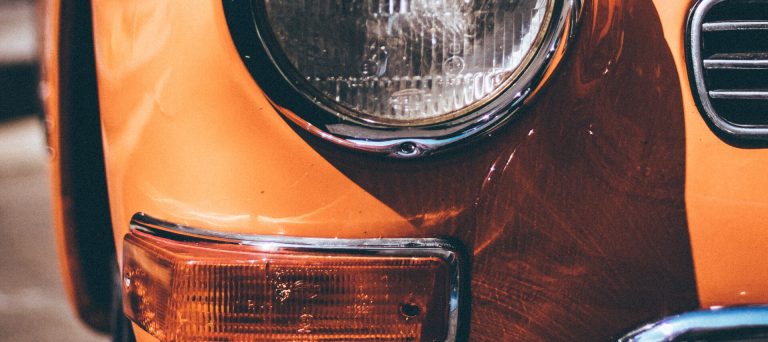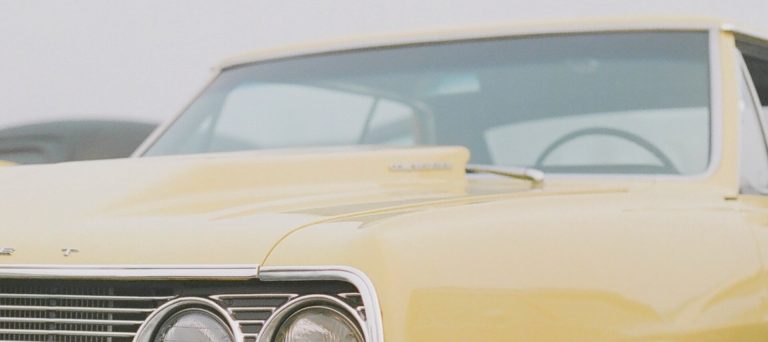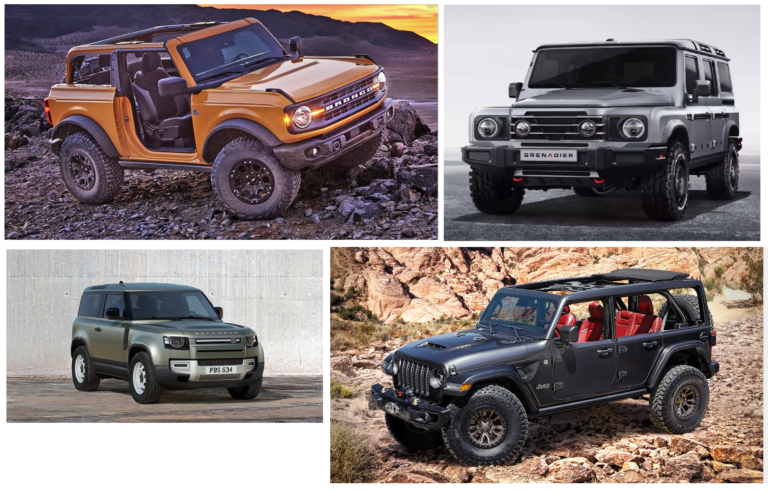Hello Baraza,
I really love your column and look forward to the Wednesday issue of the Daily Nation. I hope you will respond to my mail this time round.
Now on to my question: I have a 2005 Mazda Demio and of late, I have been seriously disturbed by a noise coming from under the hood.
The car sounds like a tractor/diesel engine and somebody can tell from a kilometre away that I am approaching. In fact, my children have become so used to the noise that they open the gate when I am still some distance away. Several mechanics have told me that it is the normal sound of Mazda engines. Is this true?
Secondly, the car is a 4WD. How do I know whether the 4WD is damaged or in working condition? Could it be the reason the consumption is not good since the car (1300cc) is doing about 11km/l, which I think is awful.I would greatly appreciate your help. MK
I would say something is definitely broken under the bonnet. Demios do not sound like tractors and/or diesel powered cars, unless so equipped. You might have an engine with a knock.
To test the 4WD, you could jack the car up, i.e put it on stands/stones. Just to be safe, prop up all four wheels.
Start the vehicle, then engage the transmission (D or first gear, depending on transmission type). Observe the wheels. If the 4WD is functional, all four wheels should spin.
If they do not, then the 4WD drivetrain has a problem, though I suspect you might get a dashboard light warning you of something to that effect.
Drivetrain problems could be a reason for high fuel consumption, though at 11 km/l, I would first ask what your driving style and environment look like before pointing a finger at the 4WD.
————————–
Hello Baraza,
I am a great fan of your column, which I read religiously every Wednesday. I am in the process of importing a car and after looking at a few options (the usual Honda Fit, Mazda Demio, Honda Mobilio Spike), I settled on a Fiat Panda.
It is a 1200cc automanual model and I would think it might be the only one on Kenyan roads. What is your opinion of the car? I am comforted by the fact that the guys at Top Gear really liked it….
Fiat has a reputation for making unreliable cars and this might actually be reflected all across the range.
Fiat cars have long been known to break down not very long into the vehicle’s lifespan, as do Alfa Romeos, which are made by Fiat, while certain models of Ferrari (another Fiat brand) tend to spontaneously combust, which could be seen as a reliability issue. You cannot call a car reliable if it catches fire by itself, can you?
Let Top Gear be. The UK market is more varied and more forgiving than ours. Cars there, being mostly brand-new, are protected by warranties and dedicated dealer networks; Britons rarely ask whether spares for a particular car are available.
They know there exists such a thing as the internet, which they put to good use (mostly). So, for a motoring journalist with a six-figure annual income (in pounds sterling), a Fiat Panda is more an object of amusement and experimentation than the sole solution to his transport needs, as could be your case. Buy it at your own risk.
————————-
Dear Mr Baraza,
Having just sold my Toyota Surf, I am planning to buy a Nissan Patrol 2007 model, diesel, or a Harrier Lexus 2006/07 model, petrol. I would greatly appreciate your advice. Pandit
This is what we call a vague or ambiguous question. What, exactly, is your dilemma? I think in a case like this, you decide what you want, whether it is a Nissan Patrol or a Toyota Harrier or a Lexus RX.
The purchase will mostly depend on how much money you have to spare and what you intend to use the car for. Do not buy the Patrol if you do not do any serious off-road excursions.
————————-
Hi Baraza,
I want your expert advice on the following cars:
1) Between the Toyota Belta 1000cc and 1300cc, which is better for Kenyan roads and fuel efficiency?
2) Is the Toyota Passo 1300 cc better than the Vitz?
3) Is the Nissan Tiida 1490cc a good car to drive and is it fuel-efficient?
4) When importing the above cars from Japan, is it okay to buy cars with mileage above 87,000 kilometres or will they break down?
Andy
1. The 1000cc car is better in fuel efficiency if you are using it in the city. The 1300 will be more appropriate for extended highway use.
In this era of the NTSA and its sometimes mind-boggling speed limits, you might be better off with the 1000cc car. You might not need the extra 300cc, especially if your car does not bear loads that extend beyond your person.
2. Better in what way? The Vitz might be the better car overall.
3. Yes, it is a good car to drive, although the 1500cc version feels a bit underpowered. But remember the NTSA and its speed limits, so you do not exactly need a very powerful Nissan car to drive around the country.
4. They will break down. However, being Japanese cars, this breakdown will happen later rather than sooner. The good thing is, a car with an odo reading above 87,000km will obviously be cheaper than one with lower mileage.
————————-
Hello Sir,
I am a young hustler whose father uses a Toyota Fielder 1400cc 2006 model. I admire the vehicle for its fuel efficiency, stability, and comfort.
I want to buy a vehicle for myself and would like a fuel-efficient one (like the Fielder). My favourite models are the Fielder, Avensis, and Allion. Kindly advise.
Thanks, and I appreciate your work. John Maina
Well, now that you are already familiar with the Fielder, it will not hurt if you get one of your own, will it? The consumption figures are not very much different with the Avensis and the Allion, but there is comfort in familiarity.
————————-
Dear John,
It was a cold day in Wolfsburg, Germany, when your current car, the Mazda Demio, won the World Car of the Year in 2008, its heyday.
However, in true German fashion, the VW board summoned their engineers and ordered them to create the finest hatchback floorpan in the automotive world and wipe the smug smile off the faces of the Japanese Demio makers.
Money was no object. The result was the VW Golf Mark 5, each built carefully in 50 hours bristling with innovation, with a Euro NCAP 5-star rating to boot, which was promptly crowned World Car of the Year 2009.
Richard Hammond, a Top Gear presenter, even had a Mark 5 Golf struck by 600,000 volts of nature’s finest lighting while seated inside as a testament to its German over-engineering.
However, the fly in the ointment and let-down to many Kenyan motorists who ship the used version of this car from Japan is the DSG gearbox which, in simple terms, is two separate manual gearboxes (and clutches), contained within one housing and working as one unit.
It was designed by Herr and was initially licensed to the Volkswagen Group. Designed to shift gears more smoothly than a conventional manual gearbox and quicker than your reflexes, this automated manual gearbox resulted in a worldwide recall by VW of 1.6 million sold vehicles.
This has caused grief to many a Golf Mark 5 owner, who experience intermittent transmission jerking, usually at low speed, and agonising delays in shifting down once the car has warmed up. VW has finally figured out the cause after a lot of head scratching since the computer does not produce any fault codes.
Apparently, the DSG transmission has a protection mechanism switch built in that prevents excessive power from being delivered to it if the brakes are engaged.
When you take your foot off the brake and step on the accelerator for power, the switch lags and makes the transmission tranny think the brakes are still on, resulting in the annoying shifting delays. Once this brake switch sensor is replaced, the fly is removed from the German ointment.
As a preventative measure, it is also worthwhile to drain all the synthetic gearbox oil from the Golf Mark 5 with a DSG gearbox and replace it with a good quality mineral oil before making the maiden trip from Mombasa port to Nairobi as VW has confirmed during recalls that in hot climates, the synthetic oil causes short circuits in the gearbox power supply due to build-up of sulphur, a scenario absent in the frigid testing grounds of Wolfsburg.
Lots of innovations remain true to form, like the fuel stratified injection (FSI) engine in the Golf Mark 5 gem in increasing fuel economy in tandem with power, and is kinder to the environment and better built than the Toyota D4 and Mitsubishi GDI employing similar engine concepts. The only catch is to ensure that no adulterated fuel ever enters the filler cap.
The ultimate Golf mark 5 innovation has to do with safety, giving it a Jekyll and Hyde personality; a safe family car packed with curtain airbags, ESP wizardly, and doors like a steel safe to ferry the children to summer camp when needed to a non-turbo Impreza and Evo thrashing hatchback when provoked by their loud exhausts on the way back home to a classy, yet frugal transporter to work on Monday.
Truly, the Golf is the car you will ever need, even in the land where the car in front is always a papier-mâché Toyota. VW fan club member
This is very enlightening. And yes, the Golf is a marvellous car; too bad about the DSG. Impressive gearbox, this one, if a little glitch-prone. I would still have me a pukka three-pedal, six-on-the-floor Golf (GTI, to be specific) if I had the inclination.
—————————————————-
Kindly tell me how a Toyota D4 engine is different from that of other Toyotas and how I can achieve maximum performance.
Also, what is its consumption (km/petrol) rate?
Toyota’s D4 engine is different from (some) others in that it uses direct injection rather than port injection. Direct injection is where the fuel is delivered directly into the cylinders of the engine, where it mixes with air and is then ignited by the spark plug.
This is at variance with previously established systems of port injection, in which fuel was injected/fed into the intake port, where it mixes with air before being delivered into the engine’s cylinders.
Achieving maximum performance is simple. Use high-octane (and reputable) fuel and stomp on the accelerator pedal as hard as you can. The fuel consumption varies, depending on the size of the engine and the size of the vehicle bearing that engine.
D4 engines are quite economical. However, when maximising performance, do not expect the fuel consumption to be impressive.




